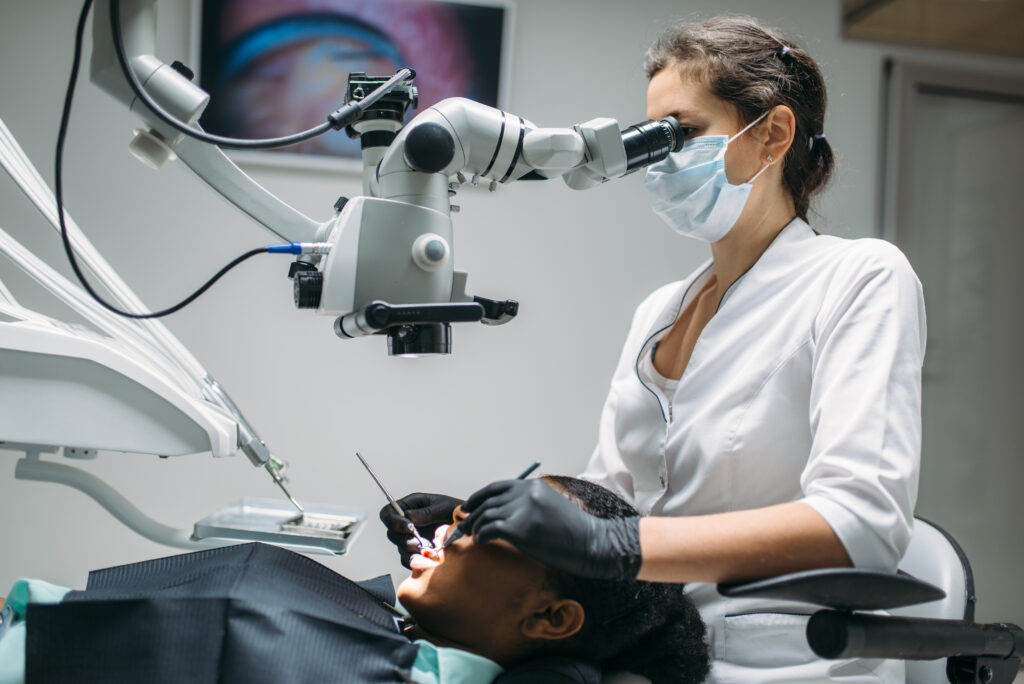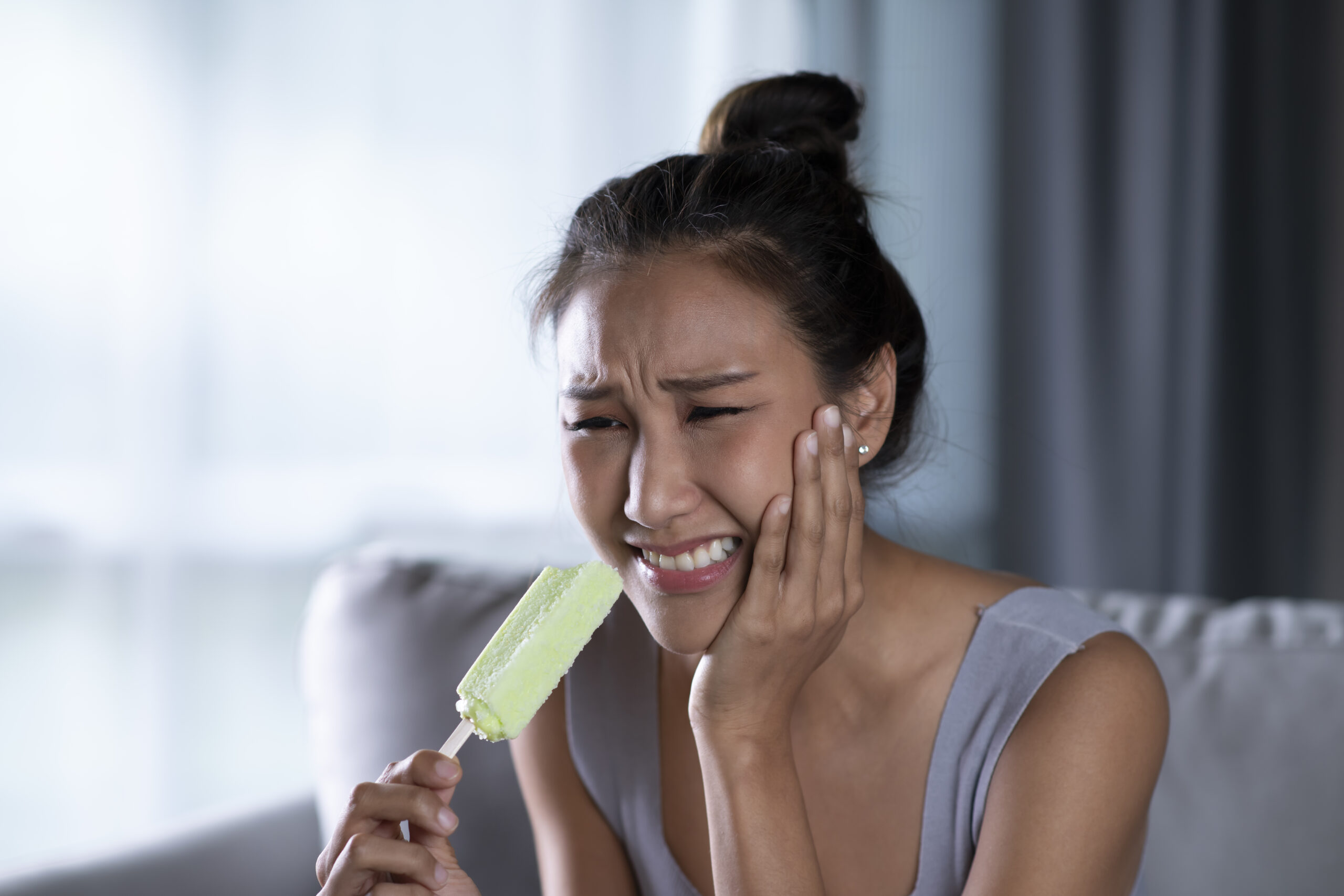Have you ever cringed while sipping hot coffee or biting into a cold treat? If so, you’re not alone. Tooth sensitivity, characterized by sharp, temporary pain when teeth are exposed to certain stimuli, is a common dental woe that affects many. But fear not – there are effective ways to treat and manage this sensitivity, ensuring you can enjoy your favorite foods and drinks without hesitation. In this comprehensive guide, we’ll delve into the causes of tooth sensitivity and provide practical steps to alleviate the discomfort.
Understanding Tooth Sensitivity
Tooth sensitivity occurs when the protective layers of your teeth – enamel and gums – are compromised, exposing the underlying dentin. Dentin contains microscopic tubules that lead to nerve endings, making it highly responsive to temperature, pressure, and acidity. When these tubules are exposed, stimuli like hot, cold, sweet, or sour foods can trigger a swift and sometimes painful response.

Common Causes of Tooth Sensitivity
Several factors can contribute to tooth sensitivity, including:
- Brushing Technique: Aggressive brushing or using a toothbrush with hard bristles can erode enamel and lead to sensitivity.
- Gum Recession: Receding gums expose the tooth’s root surface, which is not as heavily protected as enamel.
- Gingivitis or Gum Disease: Inflammation and infection of the gums can lead to gum recession and increased sensitivity.
- Dental Procedures: Some dental treatments like teeth whitening or fillings can cause temporary sensitivity.
- Cracked or Chipped Teeth: These can expose dentin and lead to sensitivity.
- Acidic Foods and Drinks: Regular consumption of acidic foods and beverages can erode enamel over time.

How to Treat Tooth Sensitivity
- Switch to a Soft-Bristled Toothbrush: Choose a toothbrush with soft bristles to prevent enamel erosion during brushing. Brush gently using a circular or vertical motion.
- Use Desensitizing Toothpaste: Specialized toothpaste for sensitive teeth contains compounds that block the transmission of sensations from the tooth surface to the nerve.
- Avoid Acidic Foods and Drinks: Limit your consumption of acidic items like citrus fruits, sodas, and vinegar-based foods. If you do consume them, rinse your mouth with water afterward.
- Practice Proper Oral Hygiene: Maintain a consistent oral care routine with regular brushing, flossing, and rinsing with fluoride mouthwash. This helps maintain strong enamel and healthy gums.
- Mind Your Brushing Technique: Brush gently for about two minutes, twice a day. Avoid scrubbing aggressively, as this can contribute to gum recession and enamel wear.
- Consider a Mouthguard: If you grind your teeth, ask your dentist about a mouthguard. Teeth grinding can lead to enamel erosion and sensitivity.
- Address Gum Health: If you suspect gum disease or gingivitis, consult your dentist for appropriate treatment to prevent further gum recession.
- Fluoride Treatments: Dentists can apply fluoride gels or varnishes to strengthen enamel and reduce sensitivity.
- Professional Dental Care: Regular dental check-ups are crucial. Your dentist can identify and address any underlying issues contributing to sensitivity.
- Desensitizing Agents: Your dentist might recommend in-office treatments like fluoride varnishes or bonding agents to seal exposed dentin.
Lifestyle Changes for Long-Term Relief
Aside from the immediate steps to alleviate sensitivity, adopting a few lifestyle changes can contribute to lasting relief:
- Dietary Choices: Consume a balanced diet rich in calcium and avoid excessive acidic foods and drinks.
- Limit Whitening Products: Overuse of teeth whitening products can worsen sensitivity. Use them as directed or under professional guidance.
- Quit Smoking: Smoking can contribute to gum disease, which increases the risk of sensitivity.
- Stay Hydrated: Drinking water throughout the day helps maintain a balanced oral environment.

Consult a Professional at Greenspoint Dental
If your tooth sensitivity persists despite trying at-home remedies, it’s crucial to consult a dentist. They can conduct a thorough dental examination, determine the underlying cause of your sensitivity, and recommend appropriate treatments tailored to your needs. Ignoring persistent sensitivity could lead to further dental issues, so seeking professional advice is essential.
Tooth sensitivity doesn’t have to keep you from enjoying your favorite foods and beverages. By understanding the causes and adopting a combination of home remedies, lifestyle changes, and professional guidance, you can effectively manage and even overcome tooth sensitivity. Reach out to our dental experts at Greenspoint Dental in Houston, Texas. We provide quality dental care.


